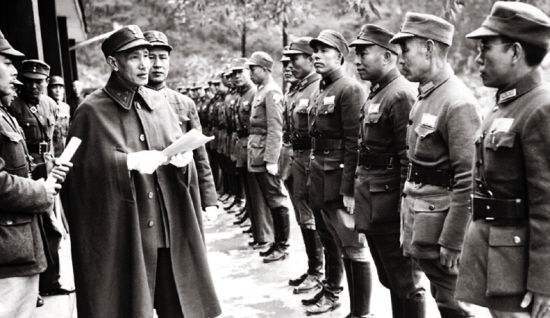But the problem was not over.
但是問題并沒有就此解決
Once West Berlin's connections with West Germany were restored, escaping East Germany was as simple as getting a train ticket to East Berlin.
一旦西柏林和西德恢復聯系要逃離東德就變得和坐火車到東柏林一樣簡單了
From East Berlin, it was just a matter of crossing a street into West Berlin — and freedom.
只要從東柏林穿過一條街進入西柏林就能獲得自由
On August 13, 1961, the East Germans began work on the Berlin Wall,
1961年8月13日,東德人開始修筑柏林墻
designed not to keep the Westerners out, but to keep the Easterners in.
不是為了阻止西德人進入而是為了阻止東德人出去
The fall of Chiang Kai-Shek in fall 1949 and the establishment of the People's Republic of China only ampified Western concern.
1949年秋天,蔣介石戰敗,中華人民共和國成立,這讓西方陣營更為擔憂

The Truman administration's opponents kept asking "Who lost China?"
杜魯門政府的反對者一直在逼問,誰丟了中國
as if Truman was to blame somehow for the Nationalist Chinese government's ineptitude and corruption.
好像杜魯門應該為國民黨政府的無能和腐敗負責似的
There was no way for the United States to know that Mao Zedong was determined to not become a Soviet lackey.
美國也沒有聽說毛澤東不想成為蘇聯的黨羽
So, combined with the USSR's network of East European client states,
因此,結合蘇聯的東歐附庸國
the new Chinese regime made it look like Communism was definitely on the rise.
新中國政權使得共產主義看起來絕對是在崛起了
As a result, the US became fanatically defensive of the rump Chinese Nationalist regime located in Taiwan.
結果,美國為位于臺灣的國民黨政權提供了了狂熱的防御
The United States insisted that the government of Taiwan belonged to the United Nations, not Communist China.
美國堅持認為,臺灣政府屬于聯合國,而非共產黨領導下的中國











